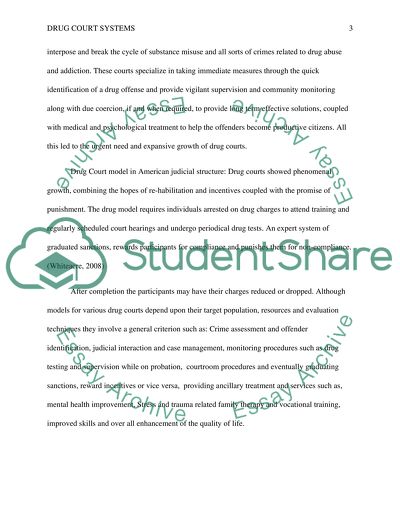Cite this document
(“Drug Court Systems Essay Example | Topics and Well Written Essays - 1500 words”, n.d.)
Drug Court Systems Essay Example | Topics and Well Written Essays - 1500 words. Retrieved from https://studentshare.org/law/1451988-drug-court-systems
Drug Court Systems Essay Example | Topics and Well Written Essays - 1500 words. Retrieved from https://studentshare.org/law/1451988-drug-court-systems
(Drug Court Systems Essay Example | Topics and Well Written Essays - 1500 Words)
Drug Court Systems Essay Example | Topics and Well Written Essays - 1500 Words. https://studentshare.org/law/1451988-drug-court-systems.
Drug Court Systems Essay Example | Topics and Well Written Essays - 1500 Words. https://studentshare.org/law/1451988-drug-court-systems.
“Drug Court Systems Essay Example | Topics and Well Written Essays - 1500 Words”, n.d. https://studentshare.org/law/1451988-drug-court-systems.


